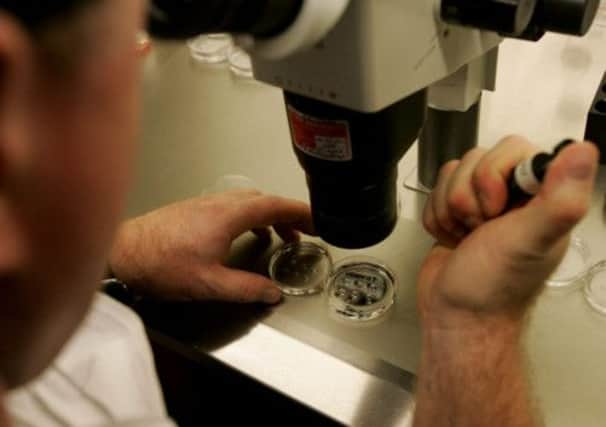£3.3m grant for Dundee Uni science initiative


The PHOQUS (PHOtonic tools for Quantitative imaging in tissUeS) project at the university has received the substantial grant from the EU’s FP7 Marie Curie- Innovative Doctoral Programme to develop state-of-the-art live cell and tissue imaging techniques and use them to improve the understanding of the complex cellular processes underlying embryonic development and disease.
The three-year initiative will train postgraduate students as interdisciplinary scientists at the interface between Physics and photonics, and medicine and life sciences.
Advertisement
Hide AdAdvertisement
Hide AdA university spokesman explained: “The university will recruit 13 PhD fellows for the project, and the successful candidates will work with leading researchers from the Colleges of Life Sciences. Medicine, Dentistry and Nursing and Art, Science and Engineering.
“PHOQUS fellows will have access to world-class expertise in life sciences, surgical and image interventional technologies, nanomedicine and photonics at the University, as well as at industrial and academic partners from across Europe.”
Professor Kees Weijer, the project coordinator, said: “We will train a new generation of exceptional scientists in the life and physical sciences, without the historic barriers that have existed between disciplines.
“The purpose of this is to develop new photonics tools that will feed into the design and development of smaller, more cost effective instruments that can investigate the cellular and molecular dynamics which drive the critical cell behaviours such as division, differentiation and cell movement in order to understand their role in development and disease.”
The partners in the project include Tampere University of Technology, Aston University, the University of Berne, Edinburgh University and the University of Frankfurt.